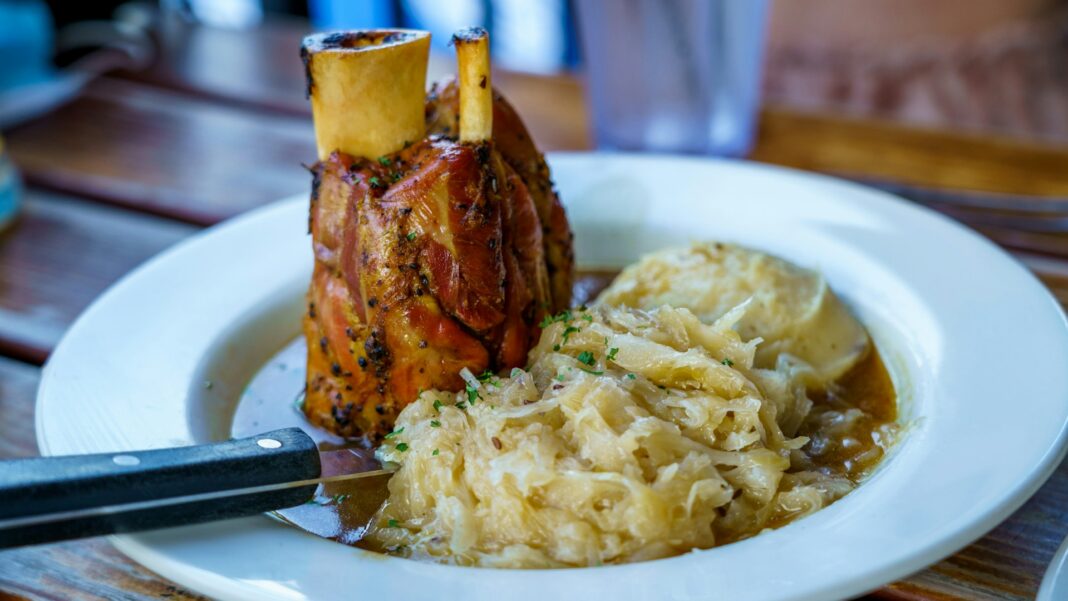Consumers have become increasingly aware of sustainable and ethical food choices in the past few years. Potato chips are not the only change; farm-raised pork is becoming more popular in the meat industry. Raised on open pasture, unlike traditional pork, there are distinct differences between pasture-raised pork and its conventionally raised counterparts. Knowing these differences allows consumers to choose more effectively, on the menu and at the grocery store.
Ethical Farming Practices
Many chefs highlight the distinct flavor profiles offered by pasture-raised pork in Texas when selecting ingredients for farm-to-table meals. With a focus on animal welfare, pasture-raised pork production is gaining attention. Pasture-raised pigs have free open areas, rather than confined spaces like most pigs do with traditional farming. This freedom enables them to perform natural behaviors essential for their well-being. The way these animals are treated humanely is one of the key characteristics of this kind of farming. Such ethical practices enhance the quality of the animals and correlate with consumers’ preference for food products that are consistent with their values.
Nutritional Benefits
Pasture-raised pork has an entirely different nutrient profile compared to standard pork. Pasture-raised pigs have a diverse diet, grazing natural forage and, at times, grains as a supplement—their varied diet results in omega-3- and micronutrient-rich meat. Pasture-raised pork has more omega-3s, which are heart-healthy fats. This pork is also a source of more vitamins and minerals (like vitamin E and selenium) than more conventionally raised pork, which improves its overall nutritional quality.
Environmental Impact
Another significant benefit of pasture-raised pork production is environmental sustainability. These operations practice rotational grazing systems that facilitate soil health and biodiversity. Grazing pigs on pastures diminishes the requirement for artificial fertilizers and pesticides that negatively impact the environment. Additionally, these operations often incorporate sustainable land management practices that sequester carbon, contributing to the fight against climate change. When you buy pasture-raised pork, you support farming systems that promote ecological equilibrium.
Taste and Quality
Regarding food choices, taste is paramount, and pasture-raised pork consistently emerges as the preferred choice. Pasture-raised pigs have a varied diet and lead a more active lifestyle, directly affecting taste. Consumers often describe this pork as having a fuller, more savory flavor than conventionally raised pork. Also, the texture of the meat is usually more dense, which many people like. Food lovers also love pasture-raised pork for this combo of taste and texture, which further elevates the complete eating experience.
Economic Considerations
Economic aspects may also affect consumer purchasing options, even with the advantages of pasture-raised pork. Because ethical and sustainable practices require more labor, care, and feeding, their price usually goes up compared to commodity pork. Yet many consumers see their purchase as investing in quality and sustainability. Consumers who opt for pasture-raised pork support small-scale farmers who prioritize ethical and sustainable agricultural practices. Support like this could help the agriculture industry make positive changes by adopting more sustainable farming practices.
Health Implications
Pasture-raised pork is a common choice among health-conscious consumers because of its potential health benefits. The increased omega-3 fatty acids lead to better heart health. And the lack of antibiotics and growth hormones (often used in conventional pork production) is an advantage for consumers who worry about those additives. Eating pasture-raised pork is part of a natural and healthy way of life.
Community Impact
Additionally, pasture-raised pork can help boost local communities. Indeed, pasture-raised pork operations are often family farms that help create local economies. Consumers support local businesses by purchasing these products, which guarantees an economic cushion for their livelihoods. In addition, supporting local farmers is also a way to preserve traditional farming practices and rural economies, and these farmers have a shared responsibility and community where they live.
Conclusion
Pasture-raised pork is a strong contender for more ethical, sustainable, and tasty meat options. This type of pork benefits our consumption, offering better welfare, taste, etc. When opting for pasture-raised pork, you are not just buying meat; you are choosing to support practices that honor animals, nourish the environment, and contribute positively to communities.





